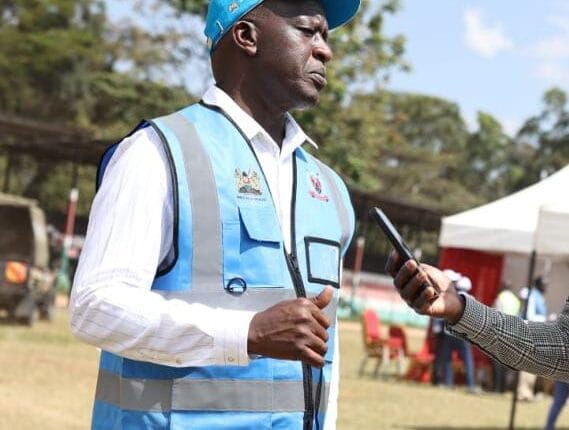Calls for Government to Increase Funding for Family Planning as Kenya Observes World Contraception Day 2024
By Shadrack Nyakoe
As Kenya commemorates World Contraception Day (WCD) 2024, health experts are raising concerns over the inadequate domestic funding for family planning programs, which threatens the country’s progress toward achieving universal reproductive health access.
According to the Director General Dr Patrick Amoth, Ministry of Health, Kenya has made significant strides in improving access to modern contraceptive methods.
As of 2022, 57% of married women were using modern contraceptives, up from 32% in 2003. In a speech read on his behalf by Dr Edward Serem, Head Division of Reproductive and Maternal Health, the dg said dwespite these gains, unmet needs persist, with 14% of Kenyan women who wish to delay or avoid pregnancy still unable to access contraception.
While the Kenyan government has set an ambitious goal of increasing modern contraceptive use to 66% by 2030, in alignment with Sustainable Development Goal (SDG) 3.7, achieving this target requires overcoming several barriers.
Chief among them is the continued heavy reliance on international development partners for funding family planning programs, despite strategic calls for increased domestic investment.
The UNFPA Representative in Kenya lauded the government for its efforts to raise domestic financing, despite her challenges. In a speech read by John Wafula, a humanitarian specialist in the UNFPA office, Kenya noted the family planning services must be viewed from rights perspective.
Dr. Violet Murunga, Research and Policy Analyst at the African Institute for Development Policy (AFIDEP) noted that family planning is not just a health issue—it is a key driver of social and economic development.
“Ensuring that every woman who needs contraceptives can access them is essential for reducing unplanned pregnancies, improving family welfare, and contributing to Kenya’s broader economic growth. We need sustained domestic financing to ensure these programs remain accessible,” said Murunga.
The National Family Planning Costed Implementation Plan for 2020 estimated that KES 7.9 billion was required to meet family planning needs, yet a funding shortfall of KES 2.4 billion still remains.
This gap leaves many women, especially those in remote areas, unable to access essential reproductive health services.
In Kajiado County, for instance, 11.6% of women report taking over two hours to reach the nearest health facility.
Despite these financial challenges, Kenya continues to lead innovative approaches to contraceptive access. The country has embraced self-administered contraceptives like DMPA-SC, empowering women to manage their reproductive health with greater autonomy.
Furthermore, with over 88,000 Community Health Promoters (CHPs) deployed nationwide, Kenya is expanding primary healthcare services at the grassroots level, making contraceptive access more equitable, particularly in hard-to-reach communities.
This year’s WCD theme, “Contraception Choices: The Power is in My Hands,” reinforces the importance of personal agency in reproductive health.
World Contraception Day offers an opportunity to amplify the message that all individuals, regardless of their socioeconomic or geographic status, should have the right to make informed decisions about their reproductive futures.
Kenya’s observance of WCD 2024 is aligned with its commitment to international reproductive health agreements, including the International Conference on Population and Development (ICPD 25), where Kenya pledged to work toward zero unmet need for family planning, reduce maternal mortality, and eradicate gender-based violence.
According to Dr. Murunga, AFIDEP has been playing a key role in supporting the Ministry of Health’s Division of Reproductive Health by providing evidence-based advocacy and helping prioritize family planning interventions that have the greatest impact.
Similarly, Girl Effect, a key partner with the Ministry of Health, is focusing on empowering adolescents and young people with media content that helps them make informed reproductive health choices.
“We are building media that resonates with young people, providing them with trusted information that supports their entire reproductive health journey,” said Eunice Mutisya, Social Behavior Change (SBC) Manager at Girl Effect.
As Kenya commemorates World Contraception Day 2024 in Narok County, health stakeholders are urging increased collaboration between the government, civil society, and private sector to ensure sustainable financing and access to contraception.
“Meeting our contraceptive needs and achieving the 2030 targets will require more than international support. It’s time for Kenya to increase its domestic investment in family planning,” said Dr. Murunga.
With a firm commitment to expanding reproductive health services, particularly in underserved regions, Kenya has the opportunity to set a precedent for sustainable, locally-funded family planning programs.
Other partners present included the USAID, Propel Health, Population Services International, TICA, Reproductive Health Network, among others.
World Contraception Day is observed annually on September 26, with the aim of raising global awareness about contraception and enabling individuals to make informed decisions regarding their reproductive health. It is a day to reflect on the progress made, identify existing challenges, and advocate for strategies to improve access to family planning services worldwide.



